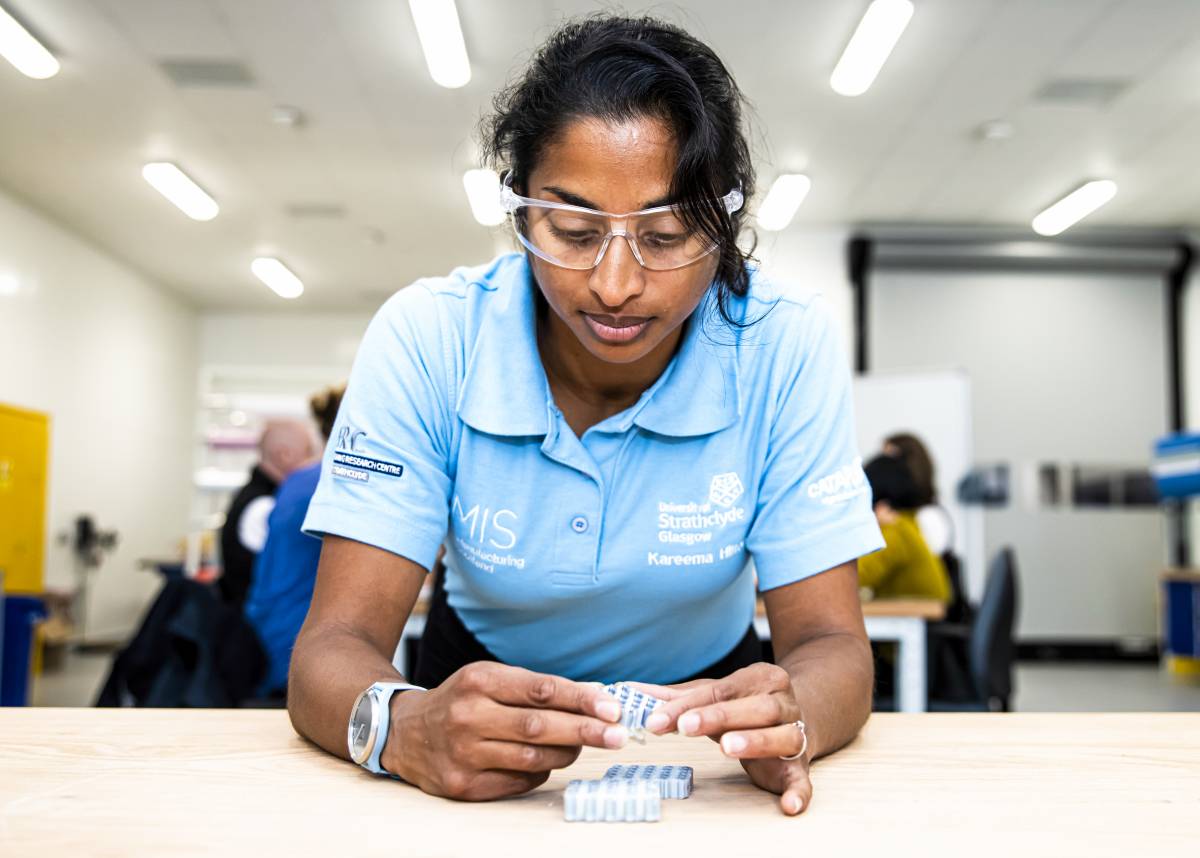Academics and engineers exploit new technologies to make shorter rehabilitation times a reality

Ambitious plans to use virtual reality technology to help patients with dystonia, strokes and sports injuries have been unveiled by the National Manufacturing Institute Scotland (NMIS).
Academic and engineering experts from the University of Strathclyde and NMIS are linking up with a range of international agencies to reduce rehabilitation times by up to 30 per cent, it was announced today (24 September).
With research studies showing that patients’ rehabilitation goals can be hampered because traditional programmes are insufficiently stimulating or speedy, the initiative has huge potential, NMIS claims. See: https://pubmed.ncbi.nlm.nih.gov/19514635
The project leaders also hope that the physical demands currently being placed on physiotherapists and occupational therapists could be reduced by harnessing the latest technological advances.
Virtual support
Using a ‘level-based system’, patients make progress through completing online games, with staff tracking their progress using gaming data and offering support virtually.
Patients follow personalised activities that are created according to their unique set of cognitive and physical impairments, and develop upper body motor skills using their arms, wrists, hands and fingers.
For example, those with dystonia can practise pouring water into a glass in the virtual world so that they won’t spill a drop in reality.
3D printing
A company called Loud1Design is helping to develop the virtual programme and a create prototype bespoke video game controller. This will be custom-made for each patient, according to his or her condition and personal needs. A manufacturing process, which uses a form of 3D printing in which an object is built one thin layer at a time, will allow for customisation.
Coordinated by the University of Pisa, the project's partners include the universities of Malta and Oulu (in Finland), University College London, and others in the industry. Saint James Hospital in Malta, Kinisiforo and NicoMed rehabilitation centre in Cyprus (https://nicomedrehab.com/kinisiforo), and the Global Disability Innovation Hub (https://www.disabilityinnovation.com) are providing patient requirements and will monitor progress when the prototypes are complete.
The use of additive manufacturing demonstrates the benefits of a flexible design that can be made bespoke to an individual user – in this case to support an individual’s physical needs to assist rehabilitation [Kareema Hilton, NMIS]
Kareema Hilton, manufacturing engineer at the NMIS said: ‘This is a fantastic project that is allowing us to use developments within digital technology to potentially improve healthcare. The use of additive manufacturing demonstrates the benefits of a flexible design that can be made bespoke to an individual user – in this case to support an individual’s physical needs to assist rehabilitation.’
Andrew Wodehouse, senior lecturer at the department of design, manufacturing and engineering management at the University of Strathclyde, said: ‘The outcome of this project will make the long recovery process more engaging while permitting the patient’s performance to be recorded accurately, allowing specific and measurable goals to accelerate rehabilitation time.
‘We are all looking forward to the completion of the project, as it will provide a significant milestone for interactive technology in improving physical health and performance.'
The initiative is funded by the European Commission as part of Horizon 2020, which aims to encourage economic growth through research. The two-year PRIME-VR2 project will create a digital environment using virtual reality in rehabilitation programmes.
At least three physiotherapists are members of the PRIME-VR2 team: Chara Vasiliou, who works at the Nicomed Rehabilitation Centre in Limassol with patients with stroke and other neurological conditions; Milos Stanisavljevic, who is responsible for the day-to-day management and administration of Planet Health International at Saint James Hospital in Malta; and Andreas Ioannou, who works at the Nicomed Rehabilitation Centre with patients who have had a stroke and with children with cerebral palsy.
For more information about NMIS, visit: www.nmis.scot
Project website: http://prime-vr2.eu
Project video: https://youtu.be/BAXio2igIBM
Share it with














